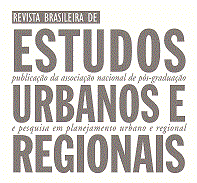Abstract
Based on a comparative perspective involving the growth machines that have propelled cities in the US and the recent experiences of urban localism that have spread across Europe, this paper analyzes the specific path that peripheral cities such as Rio de Janeiro have followed in adhering to the model of urban entrepreneurialism. It contends that, on one side, due to a lack of organization by the economic agents and on the other, insufficient state capacities, peripheral cities like Rio have been unable to replicate either the European pathway or that of US cities in implanting the tenets of urban entrepreneurialism. With the support of a case-study on the main urban interventions and economic actors involved during the mega-events in Rio, the study has developed a hypothesis, according to which, to a large extent, the project of the entrepreneurial city was mainly hailed as an ideological construct that reiterated “rent-seeking” strategies on the part of economic actors who, for decades, have occupied a central position in commanding the political economy of the city.
Keywords:
Urban entrepreneurialism; economic actors; peripheral neo-liberalization; mega-events
